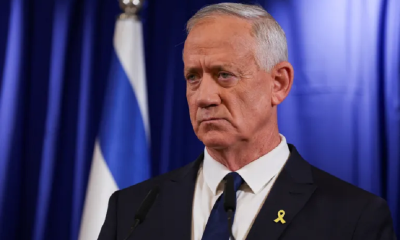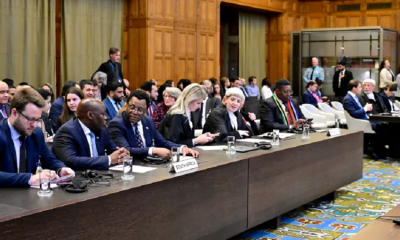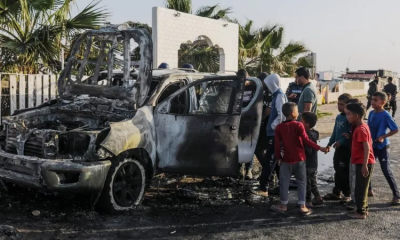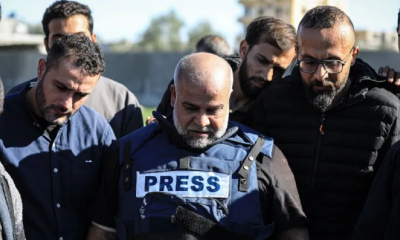Opinion
Red Sea, Gaza and Sri Lanka’s foreign policy
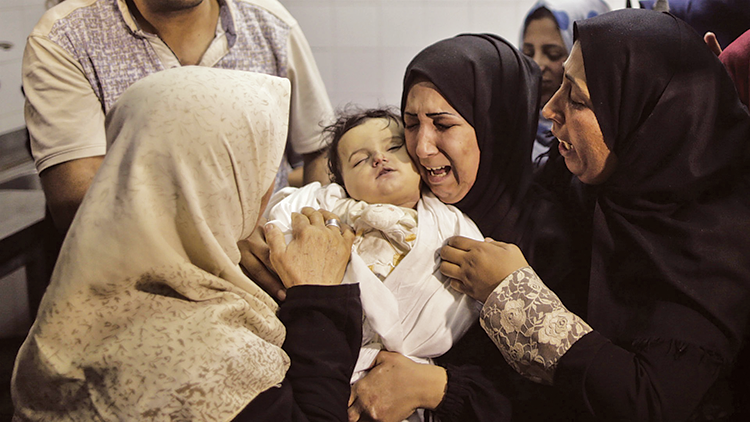
by Lasanda Kurukulasuriya
Sri Lanka’s remarks at the meetings of the 19th Summit of the Non Aligned Movement in Uganda, must surely have had observers of international relations, especially relating to West Asia, scratching their heads. President Ranil Wickemesinghe in Kampala on Friday (19 Jan.) said he welcomed the fact that the 19th Summit gave “highest priority to the crisis in Gaza and the inalienable rights of the people of Palestine to self- determination and the realisation of an independent and sovereign state of Palestine,” according to the Foreign Ministry.
At the Ministerial Meeting on Wednesday 17th Foreign Minister Ali Sabry asserted that “Non-alignment forms a cornerstone of Sri Lanka’s foreign policy.” At the Ministerial Committee on Palestine the following day, he expressed Sri Lanka’s “deep concern on the tragedy that is continuing to unfold” in Gaza, stressing that “a humanitarian ceasefire is the only solution to halt the mounting civilian death toll.”
These remarks would appear ironic, coming a fortnight after Wickremesinghe announced a decision ‘to deploy a ship from the Sri Lanka Navy to the Red Sea, contributing to the security of the region against Houthi activities.’ It would contribute to a US-led operation to counter attacks on merchant ships by Yemen’s Houthi militants in the vital trade route. The Houthis say they are targeting Israeli-linked vessels in solidarity with Palestinians, and to bring pressure on Israel to end the assault on Gaza.
It is not clear how the President’s decision came about. There has been speculation that he was possibly responding to a request from the US, to support its military action against the Houthis. His disclosure on January 3, at an event at the BMICH, came on the same day that the White House issued a joint statement from the US and some allies, warning that the Houthis would bear the responsibility of the ‘consequences’ if they did not stop the attacks.
There has been a marked reluctance on the part of even the US’s western allies to be associated with the exercise. Some countries, like India, reportedly deployed their ships in the region to protect their own maritime traffic, but not under US command. The call to join a US-led military adventure in the Red Sea cannot be seen as simply an exercise to protect international shipping for the common good, comparable with, say, the multinational effort launched some years ago that effectively countered piracy in the seas off Somalia.
This was a call to ‘take sides’ on a political issue – one that has shaken the conscience of the world. Sri Lanka, a founding member of the NAM and part of the global South will be seen, not only to have taken the wrong ‘side’ on this issue, but will end up on the wrong side of history with this wrong-footed decision – if it is carried out. It doesn’t help that amid the crisis, Sri Lanka dispatched a group of workers to Israel, possibly to meet a labour shortfall arising from the ongoing war on Gaza.
Charge of genocide
The UN General Assembly has overwhelmingly voted for an immediate humanitarian truce in Gaza, while UN agencies deplore the catastrophic proportions of the humanitarian crisis. Israel now faces the charge of genocide before the International Court of Justice, the UN’s highest legal body. The charge brought by South Africa is one that “fits clearly under the definition of genocide in the Geneva Convention, to which Israel is a signatory,” wrote Prof. John Mearsheimer, Distinguished Service Professor in Political Science and Co-director of the Programme on International Security Policy at the University of Chicago. He described the application as being “comprehensive, well-written, well-argued, and thoroughly documented.
” Anuradha Chenoy wrote that “South African lawyers unpeeled the layers of Israel’s actions in each sphere of Gaza’s people’s life to show that ‘a people are being destroyed.” The retired Dean and Professor at the School of International Studies, Jawaharlal Nehru University went on to say, “The argument and evidence presented by South Africa, is been watched by the world over the last three months. What South Africa has done is to systematically bring it together, in a compelling, convincing and courageous way.”
The US has joined Israel in rejecting South Africa’s charge of genocide.
This is the backdrop against which the Sri Lanka government seeks to support the US-led Red Sea military operation. The government’s argument is that the re-routing of ships around Africa, resulting from disruption of shipping in the Red Sea, would lead to a rise in the cost of goods and would be harmful to Sri Lanka’s economy. It is anybody’s guess whether this rationalisation would fly with ordinary Sri Lankans, who may find reasons for the ‘rising cost of goods’ nearer home.
Related events
It does not appear that the Sri Lanka Navy has been consulted on matters such as readiness of its vessels and weaponry to counter attacks by drones and anti-ship ballistic missiles reportedly being used by the Houthis, or the costs (that experts suggest could far exceed the government’s estimate of Rs 500 million a month – calling into question the argument of ‘rising cost of goods.’) A decision relating to the crisis in Gaza would anyway call for an approach that goes beyond pedestrian considerations of a ‘cost-benefit analysis.’ This was amply displayed in the high priority accorded to Palestine and Gaza at the 19th NAM summit.
At this summit Sri Lanka strongly supported the call for an immediate ceasefire in Gaza and stood by Palestine’s cause, alongside other leaders of the global South. The apparent desire, at the same time, to appease the US by acceding to a request to join its military operation against Houthis in the Red Sea, is inexplicable. Has the government failed to see any connection between the two? The relatedness of these events was noted by Russian envoy to the UN Vasily Nebenzya. The developments in the Red Sea are the “direct projection of violence in Gaza, where the cruel operation of Israel continues already for three months,” he is reported as saying at a UN Security Council meeting,
Analysts looking at the bigger picture say that what the US and UK are doing could lead to further escalation of conflict. “The US and UK are ignoring the source of the crisis, which is the genocide in Gaza, but they’re also enabling it,” said Omar Rahman, a fellow with the Middle East Council on Global Affairs. Speaking to Al Jazeera, he observed “They’re trying to prevent a wider regional escalation by taking military action against the flashpoints that are occurring as a result of what’s happening in Gaza.”
President Wickremesinghe has often said Sri Lanka will not join any big power or ‘take sides.’ But observers have sometimes found it difficult to fathom the rationale for seemingly contrary positions adopted by the Wickremesinghe-Rajapaksa government in its foreign relations. Could a remark by the president at an event hosted by the Carnegie Endowment in New York last year, give a clue to the thinking? The question put to him, in the context of US-China rivalry, was whether Sri Lanka was ‘hedging back and forth to extract as much as possible.
’ In the course of his reply he said “We have to deal with all powers that come in. We may have played one against the other, but that’s for our survival.” Can such an approach, if that is the case, be justified with the crisis in Gaza, with its deeply moral dimension, and a genocide case before the ICJ? One can only hope the government’s seemingly principled stance in Kampala will translate into course-correction, even now, on the matter of sending a Sri Lanka Navy ship to the Red Sea.
Opinion
Pope decries ‘major crisis’ of Trump’s mass deportation plans, rejects Vance’s theology
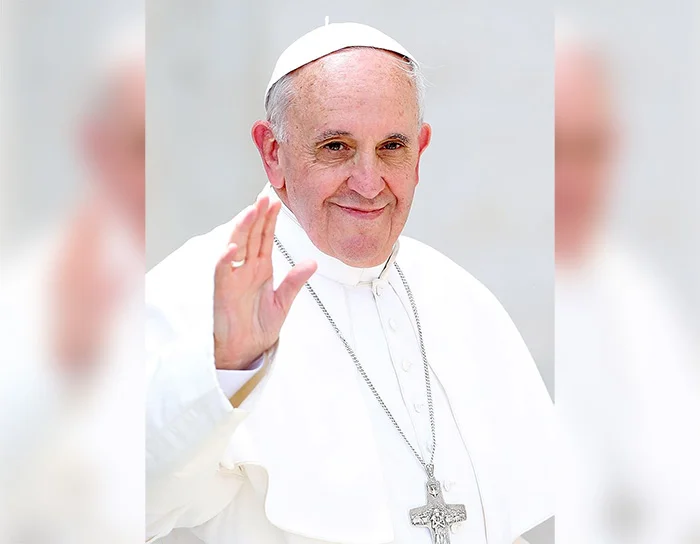
by Christopher White Vatican Correspondent
Pope Francis has written a sweeping letter to the U.S. bishops decrying the “major crisis” triggered by President Donald Trump’s mass deportation plans and explicitly rejecting Vice President JD Vance’s attempts to use Catholic theology to justify the administration’s immigration crackdown.
“The act of deporting people who in many cases have left their own land for reasons of extreme poverty, insecurity, exploitation, persecution or serious deterioration of the environment, damages the dignity of many men and women, and of entire families, and places them in a state of particular vulnerability and defencelessness,” reads the pope’s Feb. 11 letter.
Since taking office on Jan. 20, the Republican president has taken more than 20 executive actions aimed at overhauling the U.S. immigration system, including plans to ratchet up the deportations of undocumented migrants and halt the processing of asylum seekers.
The pope’s letter, published by the Vatican in both English and Spanish, offered his solidarity with U.S. bishops who are engaged in migration advocacy and draws a parallel between Jesus’ own experience as a migrant and the current geopolitical situation.
“Jesus Christ … did not live apart from the difficult experience of being expelled from his own land because of an imminent risk to his life, and from the experience of having to take refuge in a society and a culture foreign to his own,” writes Francis.
While the letter acknowledges the right of every country to enact necessary policies to defend itself and promote public safety, the pope said that all laws must be enacted “in the light of the dignity of the person and his or her fundamental rights, not vice versa.”
The pontiff also goes on to clearly reject efforts to characterise the migrants as criminals, a frequent rhetorical device used by Trump administration officials.
“The rightly formed conscience cannot fail to make a critical judgment and express its disagreement with any measure that tacitly or explicitly identifies the illegal status of some migrants with criminality,” the pope writes.
Soon after Trump took office, Vice President JD Vance — a recent convert to Roman Catholicism — attempted to defend the administration’s migration crackdown by appealing to St. Thomas Aquinas’ concept of ordo amoris.
“Just google ‘ordo amoris,’ ” Vance posted on social media on Jan. 30 in response to criticism he received following a Fox News interview.
During that interview, Vance said: “You love your family, and then you love your neighbour, and then you love your community, and then you love your fellow citizens in your own country. And then after that, you can focus and prioritise the rest of the world.”
While not mentioning Vance directly by name, Francis used his Feb. 11 letter to directly reject that interpretation of Catholic theology.
“The true ordo amoris that must be promoted is that which we discover by meditating constantly on the parable of the ‘Good Samaritan,’ that is, by meditating on the love that builds a fraternity open to all, without exception,” wrote the pope.
Since his election in 2013, Francis has become one of the world’s most vocal champions. His latest letter, however, marks a rare moment when the pontiff has directly waded into a country’s policy debates.
In the letter, however, he states that this is a “decisive moment in history” that requires reaffirming “not only our faith in a God who is always close, incarnate, migrant and refugee, but also the infinite and transcendent dignity of every human person.”
“What is built on the basis of force, and not on the truth about the equal dignity of every human being, begins badly and will end badly,” the pope warned.
In a brief post on social media, the U.S. bishops’ conference shared the pope’s letter with its online followers.
“We are grateful for the support, moral encouragement, and prayers of the Holy Father, to the Bishops in affirmation of their work upholding the God-given dignity of the human person,” read the statement.
(The National Catholic Reporter)
Opinion
Is Sri Lanka’s war on three-wheelers an attack on the poor?
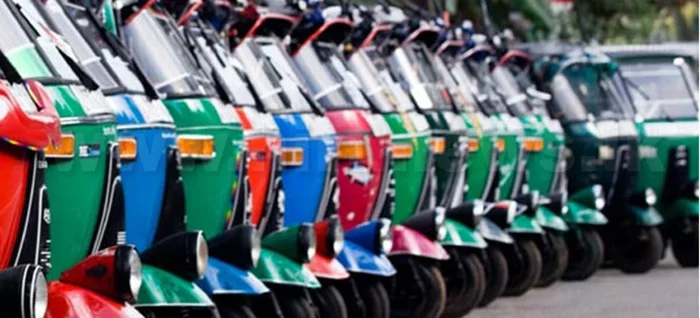
For decades, three-wheelers—commonly known as tuk-tuks—have been a vital part of Sri Lanka’s transportation system. They provide an affordable and convenient way for people to get around, especially in areas where public transport is unreliable. However, successive governments have repeatedly discouraged their use without offering a viable alternative. While concerns about traffic congestion, safety, and regulations are valid, cracking down on three-wheelers without a proper replacement is unfair to both commuters and drivers.
For millions of Sri Lankans, three-wheelers are not just a convenience but a necessity. They serve as the primary mode of transport for those who cannot afford a private vehicle and as the only reliable last-mile option when buses and trains are not accessible. Senior citizens, people with disabilities, and those carrying groceries or luggage rely on tuk-tuks for their ease and accessibility. Unlike buses, which often require long walks to and from stops, three-wheelers offer door-to-door service, making them indispensable for those with mobility challenges.
In rural areas, where public transport is scarce, three-wheelers are even more critical. Many villages lack frequent bus services, and trains do not serve short-distance travel needs. Tuk-tuks fill this gap, ensuring people can reach markets, hospitals, and workplaces without difficulty. In urban areas, they provide a quick and affordable alternative to taxis and private vehicles, especially for short trips.
Despite their importance, three-wheelers have increasingly come under government scrutiny. Restrictions on new registrations, negative rhetoric about their role in traffic congestion, and limits on their operation in cities suggest that policymakers view them as a problem rather than a necessity. Authorities often cite traffic congestion, safety concerns, and lack of regulation as reasons for discouraging tuk-tuks. While these issues are valid, banning or restricting them without addressing the underlying transport challenges is not the solution.
The biggest flaw in the government’s approach is the absence of a proper alternative. Sri Lanka’s public transport system remains unreliable, overcrowded, and often inaccessible for many. Buses and trains do not provide efficient coverage across all areas, and ride-hailing services like Uber and PickMe, while convenient, are often too expensive for daily use. Without a suitable replacement, discouraging three-wheelers only makes commuting more difficult for those who rely on them the most.
Beyond the inconvenience to passengers, the economic impact of limiting three-wheelers is significant. Thousands of drivers depend on tuk-tuks for their livelihoods, and with rising fuel prices and economic instability, they are already struggling to make ends meet. Further restrictions will push many into financial hardship, increasing unemployment and poverty. For passengers, particularly those from lower-income backgrounds, losing three-wheelers as an option means higher transport costs and fewer choices.
Instead of discouraging tuk-tuks, the government should focus on improving and regulating them. Many countries have successfully integrated three-wheelers into their transport systems through proper policies. Sri Lanka could do the same by enforcing proper licensing and training for drivers, introducing digital fare meters to prevent disputes, ensuring better vehicle maintenance for safety, and designating tuk-tuk lanes in high-traffic areas to reduce congestion. These measures would make three-wheelers safer and more efficient rather than eliminating them without a backup plan.
The government’s push to restrict three-wheelers without providing a suitable alternative is both unfair and impractical. Tuk-tuks remain the only viable transport option for many Sri Lankans, particularly senior citizens, low-income commuters, and those in rural areas. Instead of treating them as a nuisance, authorities should recognise their importance and focus on making them safer and more efficient. Until a proper substitute is in place, discouraging three-wheelers will only create more problems for the very people who need them the most.
P. Uyangoda
Director-Education (retired)
Nedimala
Opinion
Government by the people for the people: Plea from citizenry
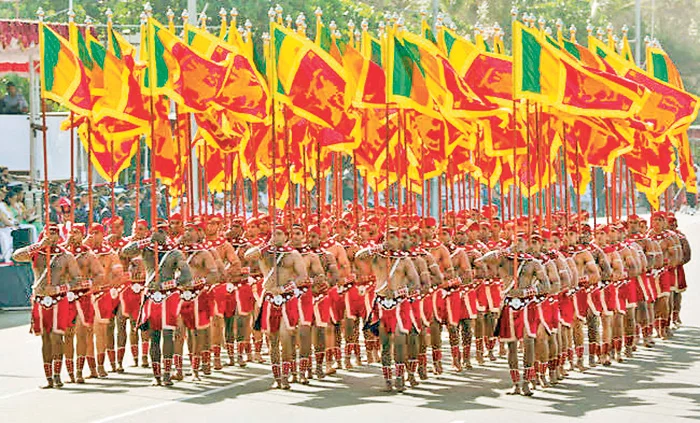
By an Old Connoisseur
The incumbent rulers keep on reminding the people, ad nauseam, that the current administration is a government for the people by the people. They have claimed the current government was born out of the uprising of the people.
All governments in democratic societies are born out of the will of the people. In such a context, all such governments have to work towards the well-being of the people with undiluted commitment. There is no doubt in the minds of even the most discerning citizens of Sri Lanka that all these promulgations are indeed the most noble of objectives and one would justifiably expect such contentions to even warm the cockles of the hearts of all and sundry.
Yet for all this, we do need to remember and firmly reiterate to our politicians that this principle should be the bedrock on which the political governance of any democracy is based. The people of a country should come first and foremost in all considerations of any legally elected democratic government. True enough, we do know for sure that even despite the very loud vocal grandiloquence of all previous governments, and I repeat all previous governments, they did not go even a little distance to hold the welfare of the people to be sacred, and their deeds and interests were completely at loggerheads with such an honourable foundation as well as essential and admirable attitudes. Without any significant exceptions, all previous political systems over the last 77 years of independence of our much-loved Motherland, have gone on record as institutions that put themselves first in all their considerations.
In point of fact, we also have to agree even unequivocally that this noble task cannot be achieved by the politicians alone. Politicians will have to take steps to stimulate, facilitate and unite all sections of society so that our people will put their collective shoulder to the wheel in a concerted initiative to lift up this country from the mire into which it has been pushed by politicians of various hues. Delving deeper into the depths of this contention, the question arises as to what or who are understood as people. In any society when one talks of people, we should focus on all people; the rich and the poor, the able and the disabled, the educated and the not so well educated, the employed and the unemployed, public-sector workers and the private-sector workers, the farmers as well as the white-collar workers, government enterprises as well as community organisations, and the business enterprises; in fact, the whole lot of Homo sapiens in our country. To improve the well-being of people we need the participation and unstinted cooperation of all these groups in our populace. An abiding sense of patriotism in the psyche of all of our people is definitely the need of the hour.
Politicians lay down the policies and the public sector ensures the implementation of these rules and regulations to improve the wellbeing of people. The public sector, including all politicians of different sorts, are servants of the people and are not deities with unlimited power just to take care of themselves and their political institutions as well as their kith and kin and acolytes. To realise these exalted goals we have to ensure that we have certain universal rules including respect for our people at all times, fair distribution of resources in an equitable manner, kindness, empathy and respect for the freedom of others, preservation and conservation of nature and the environment, adherence to the rule of law, unmitigated compliance with basic human rights and dignity, as well as the development of those very fine humane attributes such as beneficence, non-maleficence and altruism.
If we are to develop by transforming society by the people for the people, we will have to internalise and translate these attributes in our behaviour all the time and in all sectors of the community. Political leadership alone cannot do this honourable task. Society has to unite under these values and other attributes to be articulated and facilitated by the leadership. This is what many other progressive countries have attempted, some of them forging ahead with great success. For this to happen the entire society will have to work together over a long time with respect and minimal adversity. The stakeholders for this endeavour would be all individuals of society, Public Service including the political leadership, Private Sector and their leading figures and Community Organisations including their management. Every member of the population of our wonderful country should be invited to put his or her shoulder to the common wheel in a trek towards prosperity to enable everybody to enjoy an era of opulence.
The most admirable theme for the celebrations of our independence on the 4th of February this year was “Let us join the National Renaissance”. It was a clarion call to enable us to rise up like the proverbial phoenix from the ashes towards a magnificent revival. In addition to all that has been written above, the government and its leadership, for their part, have an abiding duty to take all necessary steps to facilitate the revitalisation of patriotism to urge the populace to contribute to the prospect of national resurgence. Towards that end, the general public has to be happy in this thrice blessed land and they need to live in a country that is safe and affluent. The powers that be need to realise most urgently that unless corruption is completely eliminated, the drug lords effectively neutralised, murderers and other law-breakers swiftly brought to book, various Mafia-type impertinent audacious organised collectives such as Rice Millers, Egg Manipulators, Coconut Wheeler-dealers, and Private Transport Syndicates; all of which hold the public to ransom, are ruthlessly tamed, there is no way in which we can rise and march towards any kind of Nationwide Resurgence. Of course, equally importantly, the farmers who provide sustenance to the entire nation should be looked after like royalty. It is also ever so important that vital and purposeful steps are taken to develop the rural impoverished areas and take steps to alleviate the poverty of the downtrodden. If these things are not attended to, at least for a start, the grandiose but implausible and tenuous rhetoric of that call to rally would just be a ‘pus vedilla’, and could even be a virtual non-starter.
-

 Business3 days ago
Business3 days agoSri Lanka’s 1st Culinary Studio opened by The Hungryislander
-

 Sports4 days ago
Sports4 days agoHow Sri Lanka fumbled their Champions Trophy spot
-

 News6 days ago
News6 days agoKiller made three overseas calls while fleeing
-

 News5 days ago
News5 days agoSC notices Power Minister and several others over FR petition alleging govt. set to incur loss exceeding Rs 3bn due to irregular tender
-

 Features4 days ago
Features4 days agoThe Murder of a Journalist
-
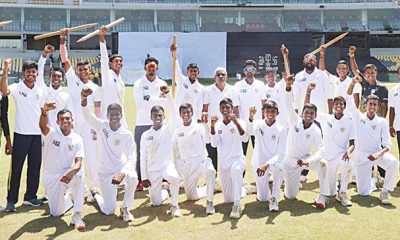
 Sports4 days ago
Sports4 days agoMahinda earn long awaited Tier ‘A’ promotion
-
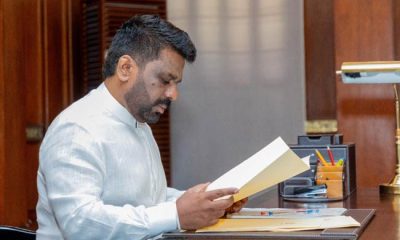
 Features4 days ago
Features4 days agoExcellent Budget by AKD, NPP Inexperience is the Government’s Enemy
-

 News5 days ago
News5 days agoMobile number portability to be introduced in June


